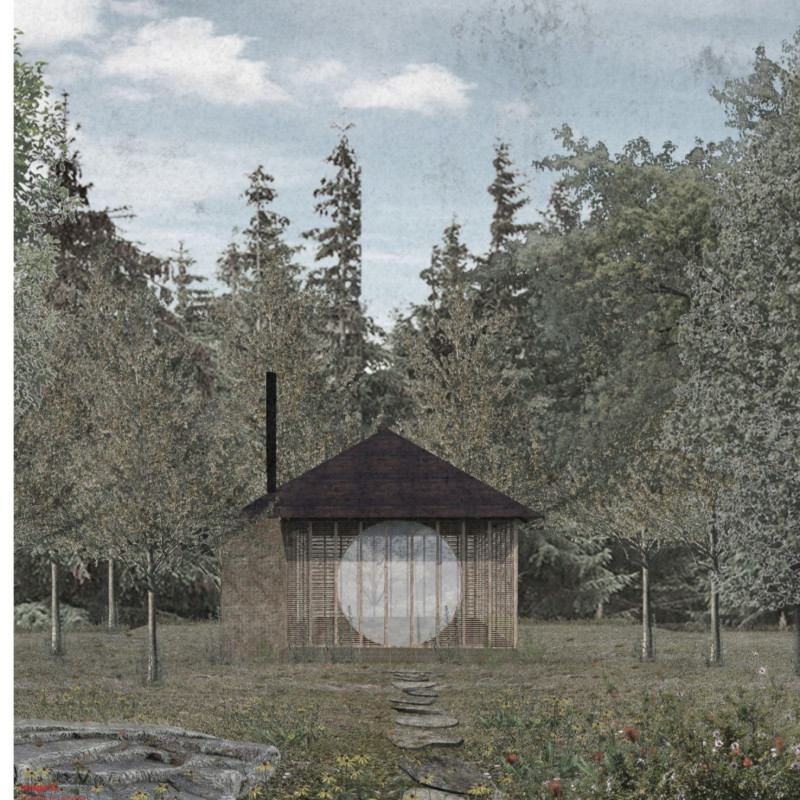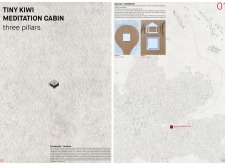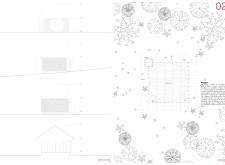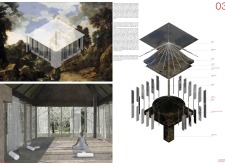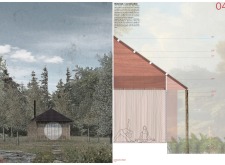5 key facts about this project
The Tiny Kiwi Meditation Cabin is an architectural project located at Earth Energies Sanctuary in New Zealand. It serves as a dedicated space for meditation and introspection, designed to integrate seamlessly with its natural surroundings. Covering a modest area of 30 square meters, the design emphasizes a harmonious relationship between the structure and the environment, encouraging users to engage with nature while finding tranquility within.
The cabin represents a multifaceted approach to well-being, focusing on mental health and personal reflection. Its main function is to provide a serene environment for individual meditation practices, yoga, and quiet contemplation. The architecture promotes an experience of mindfulness, supporting users in their journey toward inner peace.
The essential components of the Tiny Kiwi Meditation Cabin include its three prominent supporting pillars, which convey a sense of strength and stability while maintaining a visual connection with the landscape. The inclined roof design allows for efficient water drainage and provides protection from the elements, further enhancing the user experience. Extensive use of large windows facilitates ample natural light, creating an inviting interior while allowing for uninterrupted views of the forested surroundings.
The cabin features a minimalist interior layout that prioritizes functionality and simplicity, reflecting the core purpose of cultivating a peaceful atmosphere. The careful selection of natural materials such as timber, glass, clay, and metal contributes to a warm and inviting environment, emphasizing sustainability while minimizing environmental impact. This choice of materials not only serves structural purposes but also reinforces the cabin’s integration into its natural context.
A defining characteristic of the Tiny Kiwi Meditation Cabin is its unique design approach that distinguishes it from conventional meditation spaces. The use of pillars as a design feature, instead of traditional walls, creates a sense of openness and continuity with nature. This innovative structural choice allows for airflow and natural light while ensuring stability and support. Moreover, the strategic placement of architectural gaps promotes both visual and sensory connections with the surrounding landscape, enhancing the overall experience of mindfulness.
The spatial organization of the cabin further supports its intended function. By accommodating different activities related to meditation and reflection, the design fosters an adaptable space that can serve various personal practices. This adaptability is crucial for meeting the diverse needs of users, allowing for both solitary practices and small gatherings.
For a comprehensive understanding of the architecture and its nuances, readers are encouraged to explore the project presentation further. Review detailed architectural plans, sections, and design ideas to gain deeper insights into the specific elements that make the Tiny Kiwi Meditation Cabin a noteworthy contribution to contemporary architecture.


